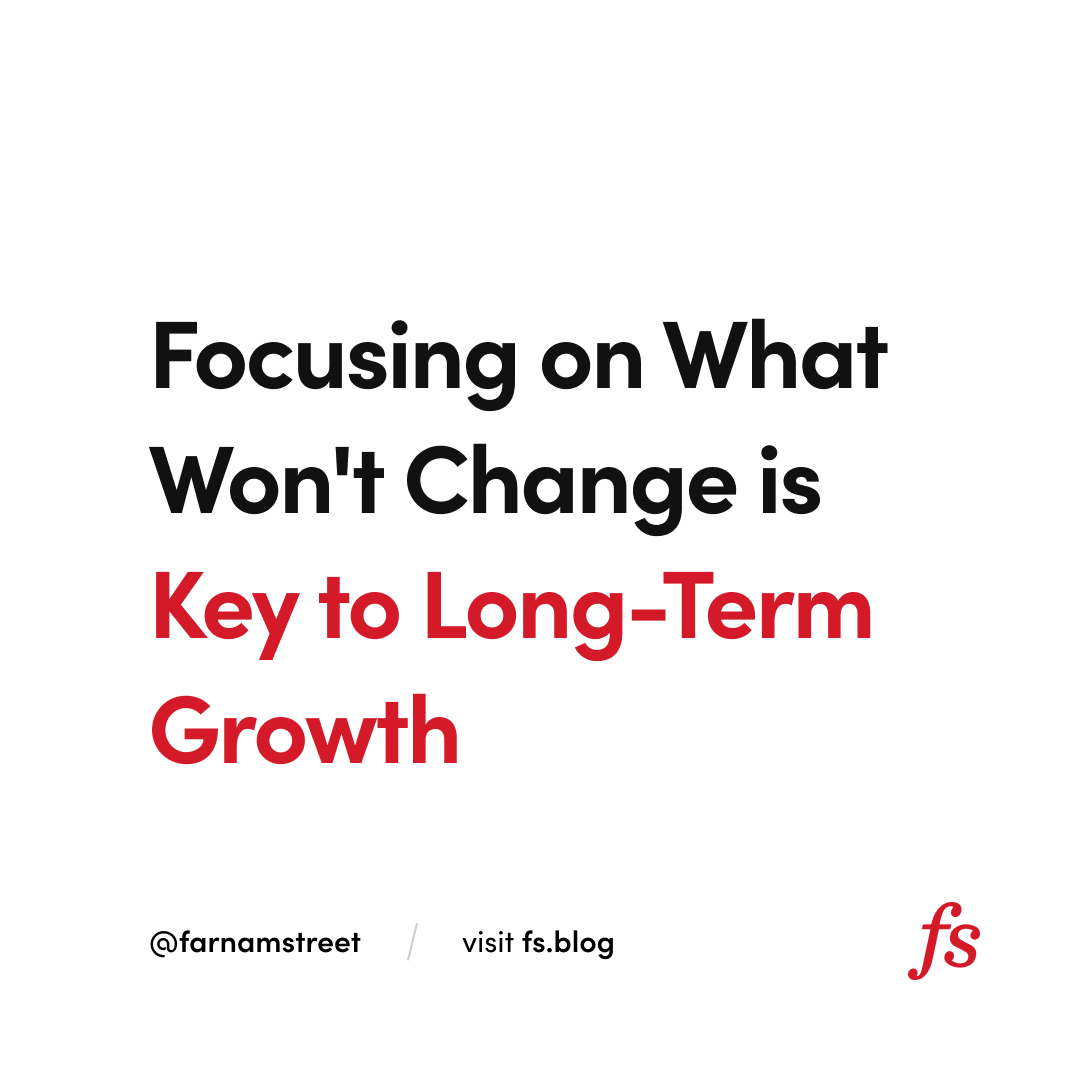Same Old Wisdom: Are You Overlooking It Tho?

Hi Friends 👋,
Imagine having the opportunity to ask Jeff Bezos 🧑💼, the brains behind the colossal Amazon empire 🏦, for business advice. What would you ask? Most people tend to ask what's going to change in the next 10 years ⏳. But Bezos himself finds the question 'What's not going to change in the next 10 years?' more significant 🎯. This is because you can build a business strategy around things that are stable in time ⏰.
With this in mind, I want to share my learnings from the book "Same as Ever" 📖 by Morgan Housel, a renowned financial writer ✍️ and author of another insightful book, "The Psychology of Money" 💰.
Permanent vs Expiring Information 📰 📚
When it comes to learning from the information around us, people usually fall into two categories. Some are news junkies 📰, always seeking the most recent information from around the globe 🌏. Others prefer to dive into books 📚, focusing on lasting knowledge.
Permanent information, like understanding unchanging aspects of markets 💹, human nature 👥, and the power of incentives 💰, holds more value than expiring information, which focuses on short-term happenings ⏳. But the hitch is, permanent information is harder to come by. While expiring information fills most headlines 🗞️, permanent information is often tucked away in books 📖, taking more time and effort to consume 😓.
However, if you can tilt your information diet 🍽️ towards permanent information, the advantages are substantial. It forms the bedrock for resilient long-term thinking 🧠 and strategies 🎯. It allows you to comprehend how the world works in ways that compound over time ⌛. Instead of knowing "what" happened, you understand "why" 🕵️, enabling you to act more effectively 👍.
The Challenge of Seeing Progress 📈
Ray Dalio once said, "The reason people typically miss the big moments of evolution coming at them in life is because they experience only tiny pieces of what's happening." 🌍 Because our lifespan is relatively short, we struggle to see the broader patterns and cycles. This is why reading to gain "permanent information" is so vital. 📚
Progress, although steady, can be like a ninja - quiet and hard to notice. 🕵️♀️ It's usually the bad news that grabs the headlines. 📰 If something improves by 1% every year, it compounds to substantial improvements over half a century. But in any given year, it's tough to feel that 1% improvement. It's easy to overlook the potential of continual little improvements every year. 📈
However, there are some areas where progress can show up like a superhero - quickly and visibly! 🦸♂️ Personal reading habits or fitness routines are perfect examples. Speaking of fitness, I've recently embarked on a workout journey. I started taking fitness seriously at the end of March and have already seen some improvement in my fitness level, which is really exciting! 💪
(I plan to delve deeper into my weight loss progress in a future episode when I've achieved more. So stay tuned for that! 🎧)
Operationalizing Long-Term Thinking ⏳
Long-term thinking is often the best strategy for investing, careers, relationships, and anything that compounds. 🚀 But, it's trickier to operationalize than most of us can fathom. 🤯
Imagine you're on an investing journey: staying invested for a long period is much like navigating a tempestuous sea. You have to endure the turbulence of recessions, bear markets, the whirlwinds of memes, meltdowns, and even changes in your personal circumstances. 🌊 These short-term events, tempting as they might be to sway you from your course, are the unavoidable costs of taking a long-term view in investing. 💰
But hold up! The ride isn't over. Even if you manage to stay the course during these downtimes (like a Zen master amidst a storm! 🧘♀️), there's another task at hand. You need to convince the other people in your life to stay on board. 🛳️
Getting others to stick with long-term thinking can be a tough sell 🎭! Not everyone gets the magic of delayed gratification 🎁. Many crave instant rewards 🍭, and the idea of waiting for benefits to stack up over time can seem strange 🤨. To add to that, long-term progress often plays hide and seek 🙈! Its subtle nature can stir up impatience and doubt, leading people to question an approach that doesn’t show immediate results 💫.
In conclusion, to truly be "in it for the long haul," you need to gear up for all the setbacks, detours, and unexpected surprises that will inevitably come your way. It's like signing up for a roller coaster ride: you know there will be thrilling highs and scary lows, but you decide to brace yourself and enjoy the ride anyway! 🎢 Trust me; it's far easier to say that you will do this than to actually do it.
Until next time, remember, the journey of a thousand miles begins with a single step. Keep marching! 🚶♀️👣
Until next time, happy reading! 📖
Best,
Sherman
Interesting Reads
“Same as Ever” by Morgan Housel





Member discussion